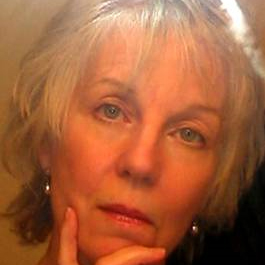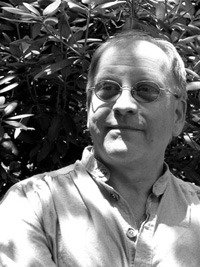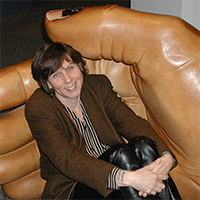War Poetry Contest 2008
Congratulations to the winners of our 2008 poetry contest on the theme of war!
Honorable Mention $100
- M.C. Allan, In the Silos, Baghdad Zoo, Of Canyons and Their Discontents
- Michael Fredson, My Vietnam Buddy
- Carlos Andres Gomez, honest/clean
- Atar Hadari, Latrun, Margalit, and First Born
- Elizabeth Hoover, Liatiko, In the Fields
- Alice Irvin, Dear Mr. and Mrs. Smith
- Michael Joyce, On the Deaths of Those We Do Not Know
- Lynne Knight, The Dread Essay
- Carolyn Moore, Death Masks from Iwo Jima and Beyond
- Jerry Neren, Survival Manual for Vietnam
- Flo St. Jean, Dress Blues
- Curt Snodgrass, Dangling Y, 1953
Finalists
- EP Allan, Omega, The Patriotic Farmer
- H. Lee Barnes, Firefight, Sticking Points
- Glenn Buttkus, On Patrol
- Carmine Dandrea, Tarawa
- Paul Handley, Freedom For
- Kelly Michels, Nuremberg
- Kevin C. Peters, Zeno in the Jungle, Through the Window of a Restaurant in Little Saigon
- Carrie Preston, Baking Bread One Morning of My Country’s Dying
- Jay Rogoff, Cultural Notes from the Commune
- Anindita Sengupta, Homecoming
- Avery Slater, Ekkyklema
- James Tyner, Watching the News in Spain, Asking My Father About a Scar on His Arm Over Dinner, Some Pages from My Book of Pacifism
Thanks to everyone who entered our seventh annual War Poetry Contest. This year we received 682 entries of 1-3 poems each. It is difficult to generalize about this year's winners, given the welcome diversity of topics and styles, but we did receive an unusually strong selection of poems about the aftermath of war, and its impact on soldiers' families.
Poems whose action is a step removed from the battlefield sometimes lack the urgency of narratives that take place in the thick of combat. Our winners rose to this challenge and wrote passionate, heart-wrenching, yet unsentimental poems that make war's long shadow visible. In particular, they plumbed the mystery of how violence is passed down through generations, in individual families as well as nations and cultures. These characters are caught in a web of suffering and retribution that is only dimly visible to them, but illuminated for us, the readers.
This was one of those years when I wished we had more prizes to go around, since our shortlisted poems were nearly equal in quality. Some poems were moved back and forth between finalist and honorable mention status a few times. All those who placed in the final group should be proud of their achievement. Though personal taste is obviously also a factor, I considered these questions when comparing poems: Is the message complex and substantial? Does the language sing? Are the scenes and characters fleshed out with enough original details that they feel true to life, and beyond that, unique and memorable?
Often, irony and dark humor provide that authenticating touch that individuates a character. Comedy and horror are close kin, both fueled by chaos and excess, both drawing their best material from situations where power has become uncoupled from rational and moral order. In wartime, humor keeps soldiers sane and helps them submit to bureaucratic absurdities, yet clowning can turn deadly in an instant, as Curt Snodgrass shows in "Dangling Y, 1953". Humor thrives on the disconnect between expectation and reality, and therefore is a powerful corrective to propaganda, as in Jerry Neren's "Survival Manual for Vietnam". For soldiers, joking in the face of death shows bravery and modesty, qualities that win our admiration while making us question whether the cause was worth the sacrifice. The narrator of Atar Hadari's "Latrun", an Israeli veteran who recalls saving a young Ariel Sharon's life, displays this acerbic humility about the historic events in which he participated.
Return visitors to Winning Writers will notice some familiar names among this year's winners. 2005 First Prize winner Jude Nutter and 2007 Third Prize winner Aliene Pylant have switched places this time, marking the first year that we had two repeaters in the top three. We also welcome back EP Allan, Atar Hadari, Carolyn Moore, Carrie Preston and Kevin C. Peters. Though I occasionally recognize some authors' distinctive styles, the contest judging is still as anonymous as possible. Could we be developing a contemporary "war poets" movement? Certainly our winners can hold their own with Siegfried Sassoon, Wilfred Owen, and their other classic predecessors.
The Winners
Aliene Pylant's "Unerring Mercy and Pure Grace" juxtaposes two narratives of fathers, daughters, and conflicted loyalties in 15th-century Spain. A young princess Isabel prays for deliverance from marriage to a brutal lecher, but her gratitude to Christ expresses itself in Crusades and Inquisition, forcing another young woman to choose between her Jewish father and her Christian lover, with tragic consequences.
The traditional form of this poem is appropriate to its historical subject, yet the language is contemporary and the rhymes unforced—no small achievement in a poem of this length. Avoiding self-consciously archaic speech, Pylant allows the physical details of the scene—the princess praying in her thin chemise on the cold church floor, the dreadful sounds and smells of a man burning at the stake—to convince us that we have stepped back in time to the 15th century. At the same time, these unforgettable images bring once-remote historical figures nearer to us, as persons struggling with the same hopes and fears as ourselves.
I chose this poem as first prize because it showed technical skill wedded to a complex understanding of human motivation: how the oppressed becomes the oppressor, and how we often squander the "mercy and grace" we are given. We empathize with the characters even as we condemn their choices, or wonder uncomfortably how we might have reacted in their place.
David Brendan Hopes' poignant, luminous poems "In the First Days of the War" and "Memorial Day" are elegies to the heroic beauty of young men killed in war. The extravagant sacrifice of "one who for the benefit of strangers/burned all his twenty years away" inspires the narrator to believe, despite the violence and cynicism of the present age, that redemption and peace are possible. The last lines of "Memorial Day" never fail to make me shiver at the presence of the sublime. I'm reminded of one of my favorite war poems, Wilfred Owen's "Greater Love", which has the same effect.
Jude Nutter transmutes loss into music like no one else. In "Carolina Grasshoppers", a school dissection project becomes an almost mystical experience of beauty and fragility, as anatomical discoveries in the laboratory mirror the young narrator's first sex with a boy who would soon "die, facedown, in the wet heath of the Falklands". In "Via Negativa" and "Visiting Uncle Peter's Grave", Nutter reconstructs the life of her uncle, an RAF pilot killed in World War II. In the absence of facts, he becomes a symbol of self-transcendence. "In the crucible/of the cockpit you achieved, without choice/and without effort, what every lover strives for".
A note on contest etiquette and our simultaneous submissions policy: After our first year in 2002, we decided to require that War Poetry Contest entries be previously unpublished, in order to advance the contest's goal of encouraging new reflections on this important theme. However, because of our long response time, we didn't want to impose a no-simultaneous-submissions rule. The reciprocal courtesy we ask from our contestants is to notify us as soon as a pending entry in the War Poetry Contest is accepted for publication elsewhere. Even if the deadline has passed, we try to permit substitutions when possible. Please do not wait to withdraw your poems until we contact you as a potential winner. A higher-than-average number of entries were withdrawn at the last minute this year. We're happy to see our excellent authors receiving the acclaim they deserve, but late notice makes the final judging more difficult than it needs to be.
My deepest thanks to all of our entrants, who faced the extremes of human experience and wrote about them with compassion, skill, and a longing for justice. We hope that such understanding and communication will break the cycle of violence in our lives.
Contest Judge

Jendi Reiter
Jendi Reiter is vice president of Winning Writers, editor of The Best Free Literary Contests, and oversees the Winning Writers literary contests. Jendi is the author of the novel Origin Story (Saddle Road Press, 2024), the short story collection An Incomplete List of My Wishes (Sunshot Press, 2018), the novel Two Natures (Saddle Road Press, 2016), the poetry collections Made Man (Little Red Tree Publishing, 2022), Bullies in Love (Little Red Tree Publishing, 2015), and A Talent for Sadness (Turning Point Books, 2003), and the award-winning poetry chapbooks Swallow (Amsterdam Press, 2009) and Barbie at 50 (Cervena Barva Press, 2010). Awards include a Massachusetts Cultural Council Artists' Grant for Poetry, the 2016 New Letters Prize for Fiction, the 2016 Rainbow Award for Best Gay Contemporary Fiction, the 2015 Wag's Revue Poetry Prize, the 2013 Little Red Tree International Poetry Prize, the 2012 Betsy Colquitt Award for Poetry from Descant magazine, the 2011 James Knudsen Editor's Prize in Fiction from Bayou Magazine, the 2011 OSA Enizagam Award for Fiction, the 2010 Anderbo Poetry Prize, and second prize in the 2010 Iowa Review Awards for Fiction. Jendi's work has appeared in Poetry, The New Criterion, Mudfish, Passages North, Cutthroat, Best American Poetry 1990, and many other publications. See their interviews in RoundPier and Lammergeier.
Photo by Ezra Autumn Wilde










